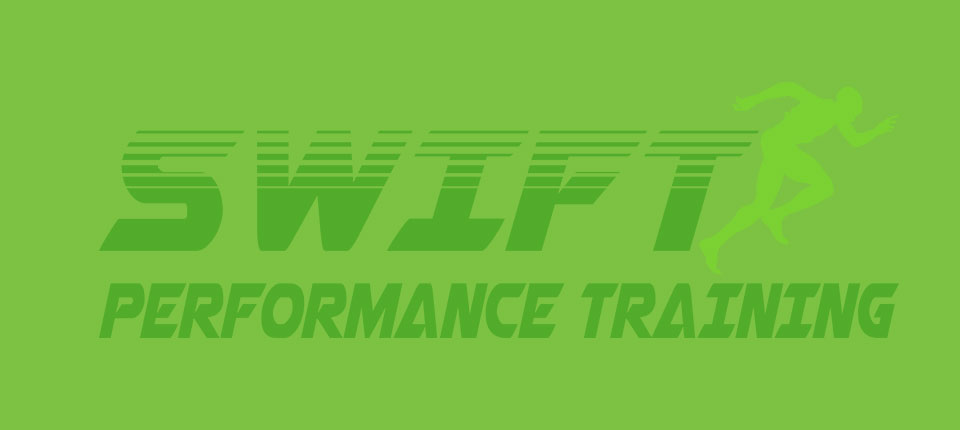Easy Dietary Advice for the Athlete
There is a lot to worry about when it comes to being an Athlete: For a small part of my life, I have been there. You’re an athlete. You’re a student. You have film, practices, weightlifting and recovery training, tutoring, and a host of other issues. Before you realize it, you’ve had a full-time job by the time you are in 7thgrade these days. Diet is very much a huge piece of the puzzle, but after you pay your debts to the above mentioned, how much time and energy do you have left to put into this?
The goal of this is to give you simple dietary advice and skills to aim for that I wish I had growing up so you can easily learn to support your athletic endeavors through diet without cramming over 100 years of science and research that will only make you feel like you have added a second full-time job like eating. That way you can stay on pace better to your ultimate goal- to get better at your craft.
It starts with Balance
Most people including myself have been super strict with their diets and have no energy left for performance and don’t have the willpower left to train hard in the gym or out on the field (or court). As odd as it sounds, maybe too much focus isn’t a good thing.
“Each one of us has a different genetic signature, athletic goal, upbringing, and training history. To think we can all eat the same because a book or television show tells us to is absurd.”
Unfortunately, in the Fitness and Sports Performance industry everyone is looking for some kind of secret when it comes to nutrition and performance. Whether it be some new superfood you saw posted on Facebook or Instagram or a new diet you read in a magazine that your friend preaches about. There is no secret, special supplement, or a magic pill. The best way to govern your eating is to make informed, well thought out decisions that relate to YOUR individual needs and goals.
Diet and Nutrition need to be more individualized just like a training program to increase speed and strength. We all want to make things so complicated, but we often lack the simple resources or willpower to follow through. And often, the simplest solution is oftentimes the best solution. There is nothing overly complicated in the free advice I am about to share.
1. Eat to Support Your Goal: Your daily caloric intake should be adjusted to suit your goals. This should be a relatively simple rule to follow. If you want to gain weight, eat more food. If you want to lose weight, eat less. This is where the math and science of a dietary program begins and it’s not rocket science. Energy in vs. Energy out. Although, people want to overcomplicate this one. Each one of us that is reading this has a different genetic code and different history when it comes to nutrition and training. Some of us have slower metabolisms and some have faster (mine was faster than my 40 time). Some of us are also on different training plans and have different goals because we are in a different sport, so more or less food varies, once again, person to person. Rather than letting a “guru” or website tell you how much you should eat, why don’t you do some research or perhaps consult with an experienced Strength and Speed coach like myself?
Track your calories for two weeks. Don’t eat any differently than how you eat now. If you or I don’t know where you are coming from, we can’t accurately tell you which direction to officially go. Record what you put into your mouth and when (time of day each day). After two weeks, look at your logs (can be done in a notebook or in a MyFitnessPal app) and make note of your daily caloric average.
From there, make changes but don’t do anything extreme. This will cause instability over time and lack of accuracy. Do too much too soon and you will set yourself up for failure because your behavior won’t last. It’s a common mistake made by those we classify as “Fitness Resolutioners”. This isn’t a sprint. Start slow. If your goal is to gain weight, first look and see if certain days are fewer calories than others. For Example, if Monday, Wednesday, and Saturday have 200-300 fewer calories than the other 4 days, then aim to make these 3 days as even as possible with the others. Basically, aim to be consistent daily! If you have a goal to lose weight, then you would do the opposite. Do these changes for 2 weeks, look back at your log, and keep making modest adjustments until you find your optimal intake. It may take you a few months to figure out how many calories you need to ingest, but personally, I would rather invest the time to do things right to meet my goals, then risk the easy, sloppy way out and set myself up for failure.
2. Eat Real Food. Ask yourself this: would you put cheap quality junk fuel into your brand new sports car or truck? Treat your body like the beautifully integrated system it is (like a car/trucks motor) so you can perform at your best, especially when it matters most. Whether organic or inorganic, when you go to the store, try to stay on the outside of the store. This is where your frozen and refrigerated Chicken, Turkey, Fishes, and Red Meat are. As well as your fruits and vegetables, some portioned out, others ready for you to grab how much you need so you can cook at home. 90% of what you should be feeding your body to be at its best will be found on the outside, only a select few items are on the shelves. Stay away from the sweets and other heavily processed items that could survive a Nuclear Holocaust.
By doing this you will help your body have less work breaking extra ingredients down while it could be utilizing the nutrients much more efficiently. Keep the intake items simple. These are the items you can lightly boil/steam, bake, grill or smoke. If you haven’t picked up on the basics of cooking for yourself, it starts here so you are knocking two birds out with one stone.
3. Eat a Good Balance of Carbs, Fats, and Proteins. Protein is a building block. You need it for numerous bodily functions. You must make sure you get enough (varies a person to person, sport to sport). Contrary to popular myth, eating fat doesn’t make you fat. In fact, the more healthy fats you give your body, the more efficient it becomes using fat as a fuel source. Fat also assists in helping you feel full. A lot of Fitness and Athlete Enthusiasts I have helped that had trouble gaining we weight (we call them hard gainers), lacked enough calories from fats to get over the hump.
You do not want to be on a no-carbohydrate diet. You will be flat and low on muscle glycogen, so make sure you eat enough carbs (once again, can vary a person to person, sport to sport). Fruits and vegetable sources and items higher in fiber are your first thing to aim for. Potatoes and rice are good choices also and do not be scared to eat whole-grain pasta bowls (we can find some great recipes that throw in fresh vegetables to the sauce). Remember, you need to keep your glycogen stores at full capacity.

Weighing, measuring and calculating the Macronutrients we covered can be quite valuable for some, but also a burden for others. Some people can jump right into this and be perfectly fine, but if this isn’t your most favorable route, just worry about eating real food first, eat a little more calories daily every couple of weeks, making modest adjustments, and continue on. Don’t start off worrying about if you need 1.2g of Protein/kg of body weight or 1.8g of Protein/kg of body weight until the others are handled without much thought. Each meal, just sure that protein, fat, and carbohydrates are well represented from high-quality sources. I would recommend about a third of your calories from each source. A simple rule of thumb is if you’re hungry two hours after eating, then your meal didn’t have enough lean proteins and leafy green vegetables. That, along with how much water you have or haven’t consumed yet. No matter if you are looking to gain or lose weight, if you are eating the right amount of calories and ratios of macronutrients, you shouldn’t be feeling overly hungry every couple of hours.
4. Eating Frequency. Some people eat all day every day. Some only eat 2-3 times a day. Depending on how much you are used to stretching out your stomach, if you get full fast, you’ll have to learn to eat a little more at lunch and dinner and have some snacks throughout the day. If you learn to consume more in less amount of time each day or are just naturally able to, then you can continue to eat more during the main meals of the day and not worry about snacks. Once again, this different person to person. I myself used to get full fast at age 20 to where I needed snacks, but at 28 years old I can get all of my calories and macronutrients in 2-3 meals a day without any issues.
It can be tough to have your meals prepped for 3 days at a time but you shouldn’t also expect to be an expert at any of this so soon in your young experience. It could take a couple of years to perfect but it’s a wise investment that will always pay off. Shakes and protein bars are an option for snacks or to help get extra calories and nutrients but this shouldn’t be leaned on too much and/or for too long. Planning ahead overall ensure you will be better prepared to succeed and develop at what you are trying to accomplish.
5. Enjoy yourself more by being flexible. The more restrictions you place on your diet, the harder you will fall off the wagon. Your workouts should have the flexibility to make necessary changes over time. So should your diet. It doesn’t have to all be dry and boring. You can season and marinate your food so it’s enjoyable. Let the change-up in flavors keep you engaged to your diet. People will follow hardcore diets religiously for months and months and then when they come off of them, they find they have no self-control left, eat everything and anything in view, and regress to something that is beneath where they started. Be practical and flexible.
If it’s your birthday or there is a big family dinner and you won’t be eating the greatest quality food, do not panic. Plan ahead for that day and the days before and you’ll be just fine. After that day, get back on track where you last left off. Do not let one day derail the rest. Have confidence in managing yourself and you’ll do the right thing.
6. Individualize and listen to the body. JJ Watts training program wasn’t made for you, and neither was his diet. The science and reasoning might make sense for you, but it wasn’t completely geared towards you. It just wasn’t. Individualize yourself to make things work more accurately. Do what best works for you. Pay attention to your body. Make weekly notes and look back every 2-3 weeks to see where you can make small, yet effective adjustments.


Recent Comments